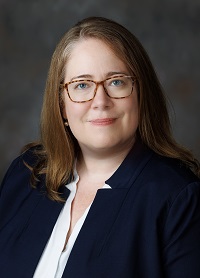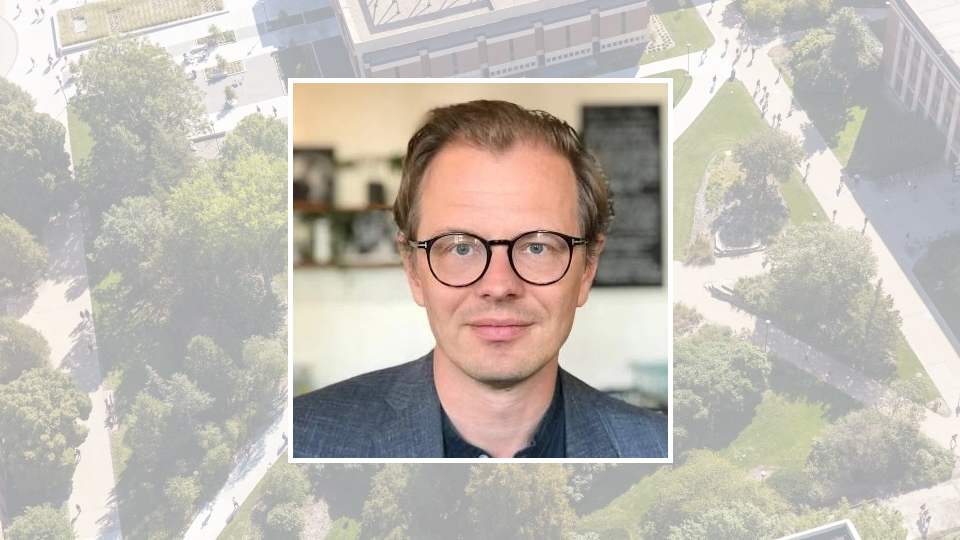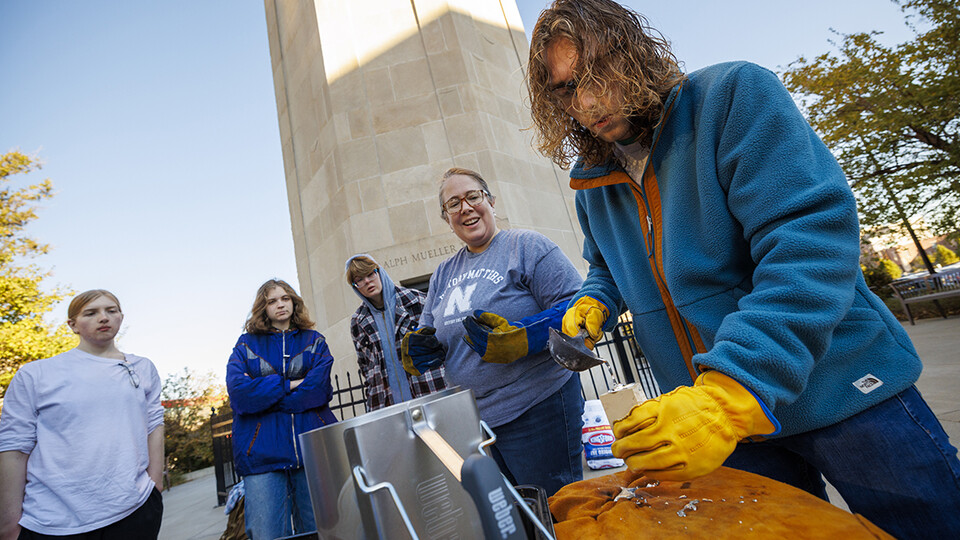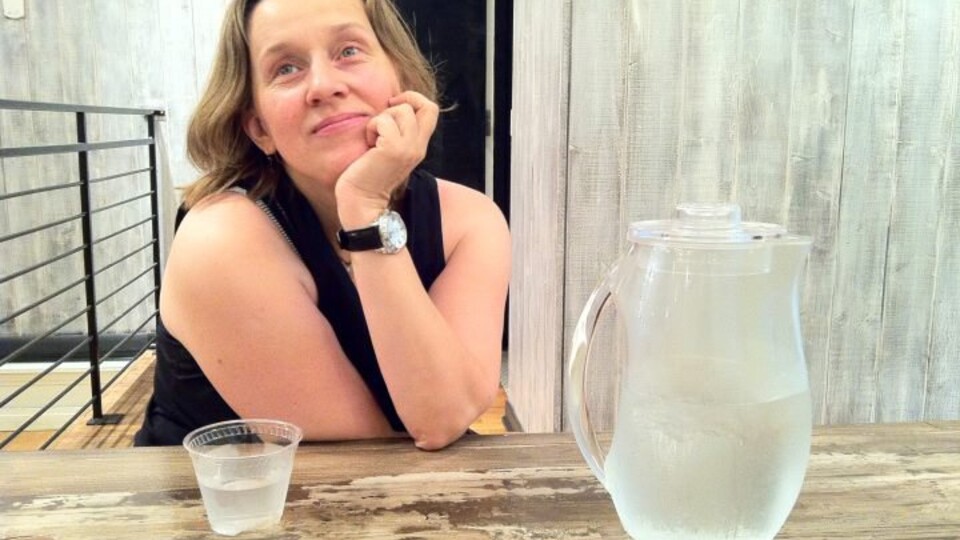
On March 19, 2024, the Medieval and Renaissance Studies program welcomes everyone to attend a talk by our newest faculty member, Dr. Carolyn Twomey, Assistant Professor of History. Dr. Twomey will give a lecture titled “Oil and Water: Baptismal Things in the Early Medieval Insular World," and speak on her highly interdisciplinary work, which focuses on the history of cultural and religious change in the premodern world as seen through the ritual objects and physical environments of conversion. Her talk will be related to her current monograph project, Living Water, Living Stone: A Material History of Baptism in Early Modern England, which examines the places, objects, and things of the sacrament between 600 and 1200 AD, including the history of liturgical handbooks, Roman baptisteries, rivers in the landscape, blessed water and oils of anointing, and the stone baptismal font.
Carolyn Twomey is an Assistant Professor in Medieval European History at the University of Nebraska-Lincoln. Her research focuses on the material religion of the Insular world, in particular the objects and architectures that defined local Christian identities during the conversion of western Europe in the early Middle Ages. Her research has received support from the National Endowment for the Humanities, Medieval Academy of America, and the Institute of Historical Research in London. She is the author of nine articles and book chapters, including a catalogue of baptisteries in the Insular world as part of a larger two-volume international collaborative research project through Brill Academic Publishers. She has coedited two other book-length works, including most recently Encounters: Early English History in 50 Objects, which is contracted for a 2025 release through Taylor & Francis. She recently joined the UNL History Department in 2023 and has already shared her passion of “Making medieval strangers less strange” through courses such as The Vikings and Medieval Culture, as well as metalcasting demonstrations, Viking-Age funeral reenactments, and a student reading of Beowulf.
The talk is free and open to the public. An informal reception will follow the lecture.


